Table of contents
Recent years have seen the growth of home DNA test companies. With so many people having ordered a DNA kit and gotten tested from home, companies now have large databases from people worldwide. If you are wondering how to get a DNA test, you have come to the right place.
This article will cover how to get a DNA test done and how easy it is to do so, especially at Nebula Genomics. We will also cover why it is essential to know your genetic composition and your best options.
What is genetic testing?
We will get started from the bottom up to make sure we cover all of our bases into not only how to get a DNA test but also how it works and why you would want to get one in the first place.
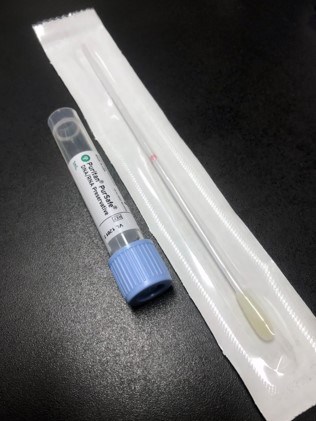
Genetic testing is also known as DNA testing. Simply put, this test decodes a portion of your DNA, or in the case of Nebula Genomics, the entirety of your genome. But more important than translating your genetic composition, genetic testing seeks to identify genetic differences or if you are susceptible to any disease or abnormality.
DNA stands for deoxyribonucleic acid, and you inherit half of it from your mother and the other half from your father. Because of this, the most popular genetic test is a DNA paternity test. This one seeks to determine if the genetic composition of a subject matches with a potential father. There are also maternity tests, but they are not as popular since it is a lot easier to establish maternity than paternity.
This is the short version of it. Genetic testing actually involves complex procedures and a variety of uses and applications. In the medical field, for instance, physicians have access to genetic tests for many diseases.
In the medical field, the test is mainly done to confirm a diagnosis, diagnose a disease that might manifest later, parental testing, forensic testing, and more.
We will be focusing on some of these types of testing and discuss the most popular reasons why so many people have jumped into the DNA testing boat.
The basic steps
Some say that DNA testing begins with a spit. It is true in many cases. Not all genetic testing companies require you to spit into a vial, though. Some companies need you to scrub your cheek with a cheek swab (buccal swab) and mail it to the lab.
How to get a DNA test done: Regardless of the company you decide to take a home DNA test from, there are some basic and easy steps that you will take:
Step 1: Order a test kit
The first step on how to get a DNA test done is ordering a test kit. Initial steps involve visiting the company’s website and deciding on an offer. Just like you would call an item on an e-commerce website, you order a kit from this company to be mailed to your house.
Step 2: Collect the DNA sample
When you receive the DNA kit, it is important to follow instructions carefully to perform the DNA collection. Not doing this properly may affect the results of your test. If your kit includes a swab, rub gently against your cheek.
If you are given a tube to spit on, make sure you brushed your teeth and don’t put anything in your mouth for 30 minutes or so after brushing them and before delivering your saliva sample. It is helpful to stimulate saliva production by gently rubbing your cheeks against your teeth.
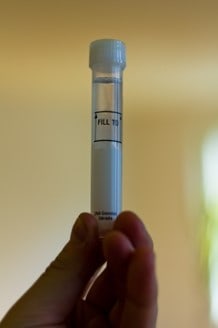
Step 3: Fill in the information
Depending on the company and the type of DNA test you are taking, you might need to fill out a form. This is especially true for DNA paternity tests.
Step 4: The laboratory isolates and analyzes your sample
This is the most complex step, and here is where the lab isolates the DNA from your sample collection and examines all of your genetic markers. Turnaround times for most companies go around 5-6 weeks. Depending on what the test involves, once your information is decoded, the lab will compare it with other results in their database.
Step 5: The results
The DNA test results are usually uploaded to a safe web portal for your access. From this point on, you decide what to make of this information. Most home DNA test companies will include subscription programs that allow them to update your information based on the most recent research.
If you aim for an ancestry test, you will most likely be interested in getting updated information as this will help you build your genealogical tree.
How to order a DNA test from Nebula Genomics
Nebula Genomics uses a very similar process that aims at making it as smooth as possible. The first step is to visit our website, and after you have gone through all the information, order your preferred kit.
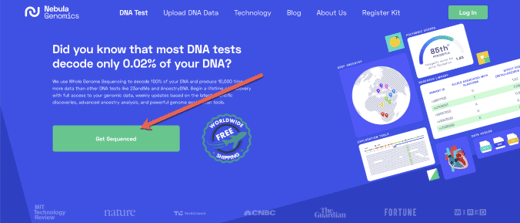
After clicking on the “Get Sequenced” button, the site will take you to the order page, where you select the best option for you.
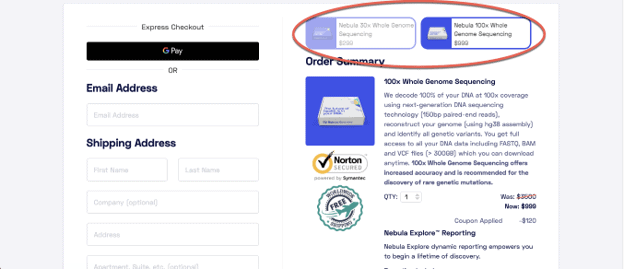
In order for you to have your genetic information updated, you will need to create an account. We will add all your data to this profile.
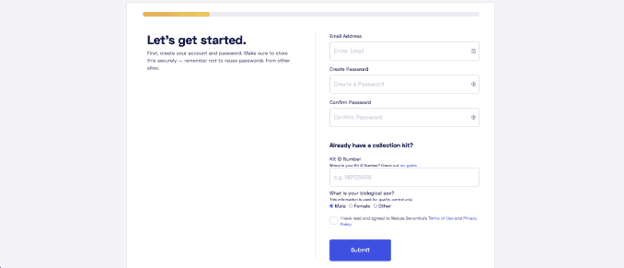
Why do people order home DNA test kits online?
Perhaps you have made up your mind and want to take a test to get to know your ancestors or want to know your genetic chances of developing a disease (especially if it runs in your family members).
Or maybe you are on the fence and not sure if you want to commit. So, why are so many people so intrigued about their DNA diagnostics? These are the main reasons why people take DNA tests:
It is cheaper
DNA testing is not a new practice. Its history goes back to the 1920s when scientists discovered the four different blood types in humans. It is direct to consumer DNA test kits that became popular in recent years.
When companies saw the profit when this type of testing was performed at home, they were able to lower the costs. Additionally, improvements in technology that allows DNA to be sequenced quicker and easier is also driving down costs. For this reason, people will go to these online companies because the test is significantly cheaper.
How much does it cost to get a DNA test? Most at-home companies’ DNA test costs can go between $25 to $300, depending on how much of your DNA is sequenced and how it is interpreted in reports. Some comprehensive tests may charge $300 to $500. Additional lab fees may also apply. On the other hand, a laboratory test cost can go from several hundred to several thousand dollars. In the case of a DNA paternity test, while an at-home is less than $100, a court-ordered one can hit upward $1000.
This price difference offered by testing companies is one of the reasons the practice became so popular.
To help improve health
A common disclaimer of dietary supplements and programs is that “results may vary.” This is because our bodies respond differently to different stimuli and substances. The best way to know how your body will react to any dietary supplement is through your genes.

Many people resort to a DNA testing service to better assess their bodies’ response and risks to certain substances. The information provided goes beyond known allergies, as a more profound knowledge of the genome can help determine a body’s response to a certain stimulant.
Take a look at our thoughts on DNA diet testing for more information.
Many companies, like Nebula Genomics, will assist you in creating a diet regime that fits your body and needs ideally. We are constantly updating our databases with the latest discoveries in genetics to ensure that your information is always up to date.
To learn their ethnicity
Almost all of us have wondered at least once, “Where do I come from?”
This and more questions can now be answered by genetics. An ancestry DNA test can take you back thousands of years into your family history.
People want to know about their ancestors and where they lived. Most companies will offer an ancestry test, which will have satisfactory results depending on the company’s DNA database, which depends on how many people have tested with them. DNA matches can even help you find known or unknown relatives who have tested with the company.

Nebula has partnered with FamilyTreeDNA to allow your DNA to be compared to the world’s largest database. You get the highest chances of finding your ancestry.
To determine paternity
A paternity test has the sole purpose of determining the biological relationship between an individual and an alleged father. While other DNA tests can help you find ancestors that lived hundreds of years ago, this one will only find if you fathered a child or not.
Legal courts will require testing from a certified laboratory to confirm or deny an alleged father. These must be performed in on-site laboratories. If done only for the peace of mind of confirming paternity, an at-home test is the best option.
To learn the risks of acquiring a disease
In the medical field, your genes can reveal if you have the genetic predisposition of acquiring a disease or condition. If it runs in the family, you may want to know if you inherited a risk of developing it too.
It’s important to remember that inheriting a genetic risk factor does not necessarily mean you will develop that condition. Other factors go into diseases and disorders including environment, lifestyle factors, and sometimes luck.
Other reasons why people are ordering a DNA kit to test from home are:
- To connect to a cousin
- To discover unknown ancestry
- It helps establish your sensitivity to carbs, fats, caffeine, etc.
- Make a better choice on a fitness/exercise plan
- Child custody and support
Essential things to know before getting a DNA test
As with any first-time venture, it is always a good idea to know what to expect. When the DNA test kit arrives, you will be asked to deliver a sample of your DNA to the lab. Here’s what you need to know:
- You are opening the book of you. The company you take the test from will store your genetic data and that of other thousands of DNA test participants. They will use this information to provide information about your ancestors and even relatives you did not know you even had.
- Consider the privacy implications of the information these companies have on you. This information should only be shareable if you consent to share it. If you decide to do so, you have greater chances of being found by unknown relatives.
- Law enforcement agencies can access genetic information, and testing companies will release it when required for legal compliance.
- You may get wrong test results or information that may surface personal issues regarding identity and heritage.
- Navigate through and learn the various offers for DNA testing. We created a guide for you to take a look at the most important ones. Keep in mind that the larger the database, the better the chance to find any lost relative. If you are taking a test for health and nutrition, all companies will be looking for essentially the same thing.
- You should know that DNA is essentially a code. This code provides instructions on how to create organic material. Segments of DNA codify for a particular amino acid. Amino acids build proteins, which create new cells.
These cells then turn to tissue, several tissues together form organs, and organs make up people and all other organisms. Long strands of DNA are coiled up into structures called chromosomes. These chromosomes are what we inherit from our parents.
- DNA matching has its limitations. Chromosomes contain not only the code for each person but also information passed on by their parents. This is why siblings share a considerable amount of DNA.
You also share some with your cousins but not as much. The further back you move in your genealogy, the less information you share. This can make it difficult for your DNA “fingerprints” to match a 3rd or 4th cousin, for example.
- There are generally three types of tests: Autosomal, Y-DNA, and mtDNA. What kind of test you take largely depends on what you are looking for. The most common tests are autosomal, which can trace back both your maternal and paternal lines.
A Y-DNA test can go even further, but only through your paternal line, and only males can take them. The mtDNA test is matrilineal and traces your ancestry through your mother’s line and can be taken by anyone.
DNA paternity tests
Since paternity DNA tests are still very popular and not only for paternity court disputes, let’s take a brief look at them. Nebula Genomics does not offer paternity tests, but our thorough tests can quickly establish a match between you and a potential father or child.
DNA paternity tests are very accurate. A test can reveal with 99.9% accuracy if a person is a biological father. This is because half of a person’s genetic information comes from their father and these markers are easily identifiable in both subjects.
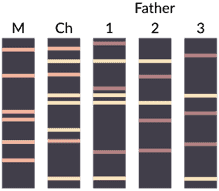
How to get a court ordered DNA test: If required for a court case of paternity, a paternity legal test has to be done by an accredited laboratory in accordance with the Family Law Act of 1975. This legal DNA test guarantees results such as birth certificates and child support. An at-home test is the most cost-effective way of getting tested, but they are not admissible in court.
We have more detailed information on legal DNA paternity test kits for you to check out.
Nebula Genomics is your best option for DNA testing
When it comes to DNA testing, your best option is Nebula Genomics. Our 30x Whole Genome Sequencing guarantees that you will get the most complete results no matter what type of test you take. While most other DNA companies only decode 0.02% of your genetic code, Nebula decodes 100% of your DNA profile.
Our database is constantly updated to offer you the most recent information on genetic discoveries. This increases your chances of finding more relatives and getting more information on your ancestry. Weekly updated reports ensure that your results are compared against the most recent scientific research.
Unlike many other at-home DNA tests, Nebula ships to nearly anywhere in the world. This makes ordering online and access to some of the best DNA technology easy to do no matter where you are. You can order yours online today!
Edited by Christina Swords, PhD
